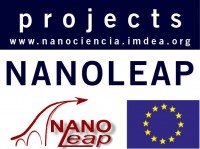NANOLEAP Nanocomposite for building constructions and civil infrastructures: European network pilot production line to promote industrial application case
Prof. Isabel Rodriguez
-
Funding :
H2020-NMP-PILOTS-2014 n° 646397
-
Duration: 2015 - 2018
-
42 months
The NANOLEAP project brings together a European Network of pilot facilities focused on scaling up innovative nanocomposite based technologies and processing methods for the construction sector.
Through an open access to the pilot facilities, the goal of this infrastructure is to support the research activities of European SMEs in the construction sector enabling the progress of nanocomposite products to next steps of technology deployment and to enter in the commercialization stage.
Ten pilot plants participate in the network developing innovative applications of polymeric nanocomposites in the areas such as:
IMDEA Nanoscience with an imprinting roll to roll pilot plant participates actively in the development of multifunctional polymeric nanocomposites through surface nano engineering.
http://www.nanoleap.eu/




